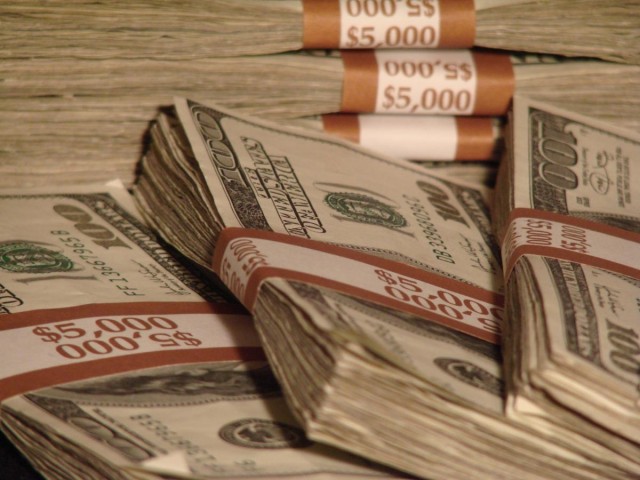If you were given good advice from a trusted source – someone who was unconstrained and did not have any particular loyalties to anyone or any cause – would you follow it? Because a former Fed banker has just given anyone willing to listen some great advice about how to protect themselves financially against a potential new financial crisis. Will you listen?
As reported by Forbes, if you assembled a list of the world’s smartest and most famous investment experts, all of them were attended John Mauldin’s Strategic Investment Conference in May.
While there was a great deal of information reportedly conveyed at the conference concerning investment ideas and strategies, the consensus among most of the speakers there is that economically speaking, things are about to get very, very, ugly.
Lacy Hunt, David Rosenberg, Neil Howe, Jim Grant, Mark Yusko, Gary Shilling, and even John Mauldin “painted a very pessimistic picture for the stock market—but the most alarming comment came from Richard Fisher,” Forbes contributor and conference attendee Tony Sagami wrote.
Most of us don’t know Fisher, but he’s the former president of the Federal Reserve Bank of Dallas and voting member of the Federal Open Market Committee (FOMC) from 2005 to 2015. “You couldn’t find anyone more wired into the Fed and the state of the economy than Fisher,” notes Sagami.
For one thing, he’s very concerned about the $19 trillion (and rising) U.S. government debt, which has risen an incredible $11 trillion in the Age of Obama (since 2008) – though George W. Bush’s eight years in office is the second-fastest period of debt growth.
Fisher says he is worried because the Fed has tried everything it knows how to do to help the economy grow, and it just isn’t. Now, the Fed is out of ideas and plans.
However, writes Sagami, “Fisher’s most telling comment came during the Q&A session when he was asked how his personal portfolio was positioned. Fisher’s response: ‘In the fetal position.’”
What’s more, Sagami writes, Fisher also said (paraphrasing), “All my very rich friends are holding a lot of cash.”
Not a couple or many…but all of them.
Sagami says that is the very same thing he’s been repeating since 2014, and finally, he notes, a great many experts and Wall Street investors are beginning to echo the same message.
“But maybe you don’t share that cautious view and think your portfolio is packed with great stocks,” he wrote. “Not so fast! No matter how good an investor you are, it isn’t easy making money in the stock market… even when times are good.”
He notes further:
According to the people at Longboard Asset Management who studied the performance of more than 14,000 stocks between 1989 and 2015:
- 1,120 stocks (7.7% of all active stocks) outperformed the S&P 500 Index by at least 500%.
- 976 stocks (6.8% of all active stocks) lagged behind the S&P 500 by at least 500%.
- The remaining 12,404 stocks performed above, at, or below the same level as the S&P 500.
- 3,431 stocks (23.7% of all) dramatically underperformed the S&P 500 by 200% or more during their lifetimes.
As you can see, the key to making money in the stock market is to avoid the dogs, but that’s easier said than done and almost impossible when the stock market is falling.
And while none of this means you should dump all of your stocks tomorrow, clearly it is time to put in place a valid defensive strategy – and the wealthy are hoarding cash.
It’s been pretty clear now for more than two years, as successive Federal Reserve chairpersons have flirted with the notion of ending or at least backing off quantitative easing – the pouring of tens of billions into the economy, to no avail – as well as boosting interest rates ever-so-slightly. But even those tricks have not done much to stimulate an economy in which nearly 100 million Americans are not in the labor force, just 38,000 jobs were created in May, and the economy has been on life support at less than 1.5 percent growth for the last three quarters.
Meanwhile, the debt just continues to climb…
So, to quote a famous credit card commercial, “What’s in your wallet?”
Sources:


